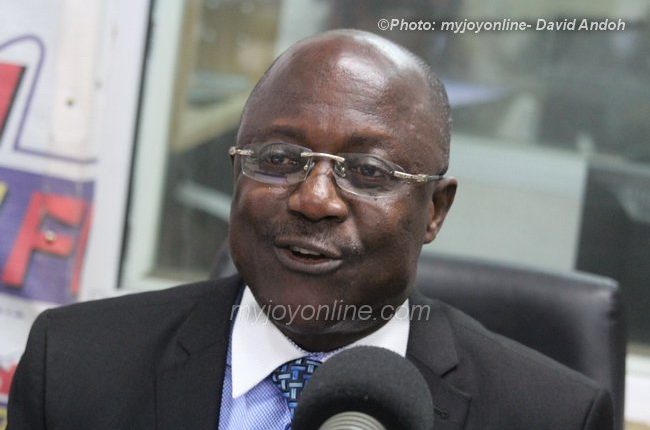Human Rights lawyer Prof. Ken Attafuah is worried that efforts by the state to sensitise the public against the excesses of the 1979 and 1981 revolutions may be a lost cause.
Then Executive Secretary of the National Reconciliation Commission (NRC) set up by the Kufuor administration in the early 2000s, Prof Attafuah said chances to prevent a repeat of the human rights violations that occurred could be stalled.
The criminologist said there are attempts by some individuals and other interested groups to eliminate any sign of the report ever being compiled.
“The Commission at the time of giving the report to former President Kufuor also made copies available to every public university in the country. The Balme Library at the University of Ghana, for instance, had ten copies.
“I have had researchers from all over the world, coming in wanting to study the NRC report and asking for copies of the report and not getting it because it is simply not available in any public domain,” he told Evans Mensah, host of Newsfile on JoyNews, Saturday.
According to him, by January 2009, the copies available in all the public libraries and online portals had disappeared.
Prof Attafuah’s comments follow the release of JoyNews Documentary, Scars of the Revolution’ which highlighted the atrocities of the country’s darkest days in history.
Former President Kufuor in his bid to seek national cohesion instituted the NRC because he felt people were still aggrieved.
Subsequently, Ghanaians embarked on a traumatic and divisive journey into their troubled past starting 2002 when the NRC began investigating the bloody secrets of dictatorial unconstitutional regimes.
The formula was simple: torturers, killers and their political leaders were to come forward and confess their crimes and that if they did so they would be granted amnesty.
For the victims, there was to be recognition of their suffering and for perpetrators of the crimes, an opportunity to apologise for their actions. By the end of the process, the slate had to be clean and the past exorcised.
The Commission finished its work and submitted a White Paper to government in 2005.
According to Prof Attafuah who said he wrote his doctoral thesis on the public tribunal and the administration of justice from 1983 and 1993, getting resource materials on within the period especially NRC report was almost impossible.
“I remember searching and not finding a single copy of any newspaper (Daily Graphic, Ghanaian Times, Ashanti Pioneer or any of those dominant newspapers) for my research at any public library in this country.
“I think whoever was on a mission to remove these documented histories forgot that there was a place called African Studies and their libraries had copies.
“That was how we got a window into the documented history through the pages of newspapers…it was in the interest of some person or persons not to want these documentations to remain in the public space,” he said.
Daughter of one of the murdered generals, Esther Odartey-Wellington has expressed her utter dismay in the fact that consequent governments, following the release of the NRC recommendations in 2005 did not do much to finish the job of helping the nation heal fully from the June 4 Uprising and its bloody aftermath.
“Why has it [government] not carried out the recommendations in full?” she quizzed when she appeared on Joy FM’s Super Morning Show.


Comments are closed.